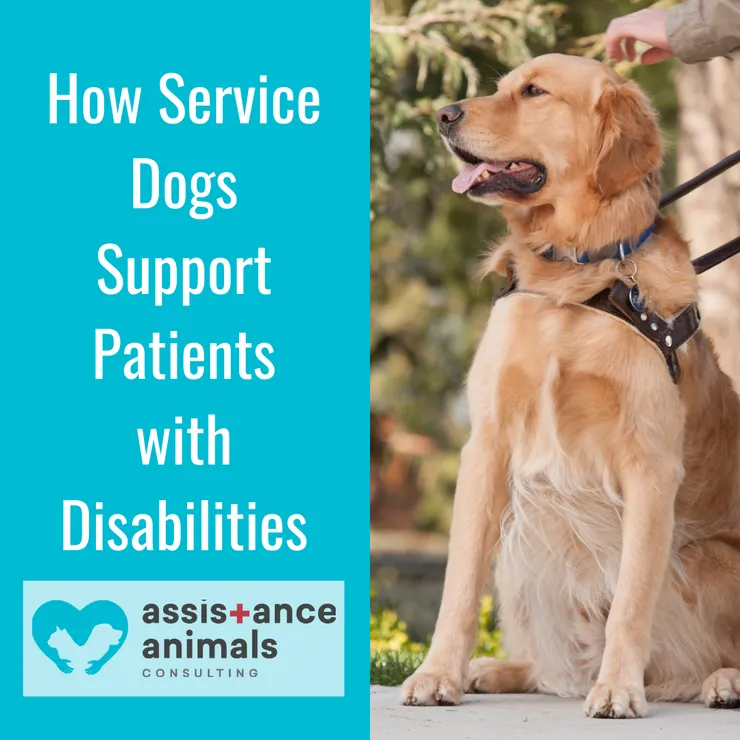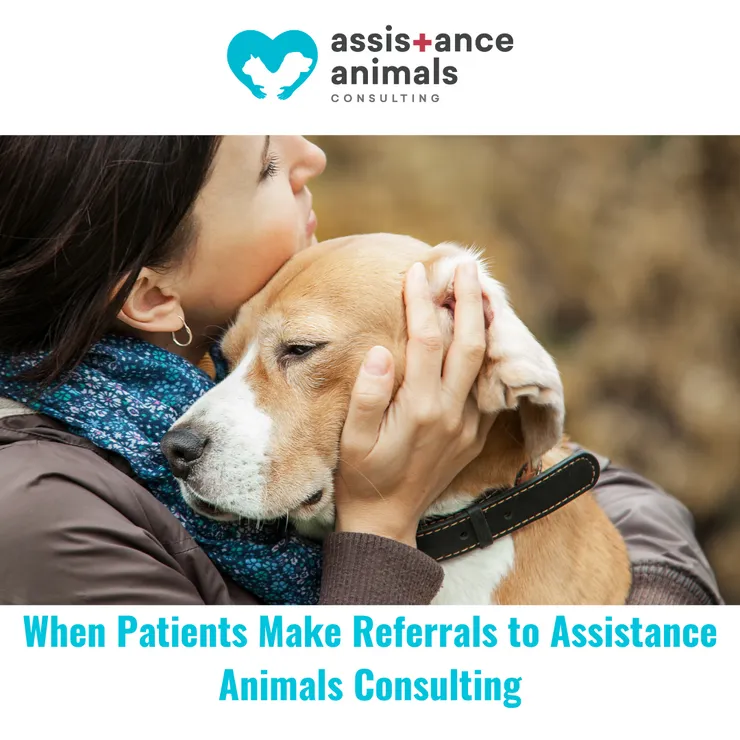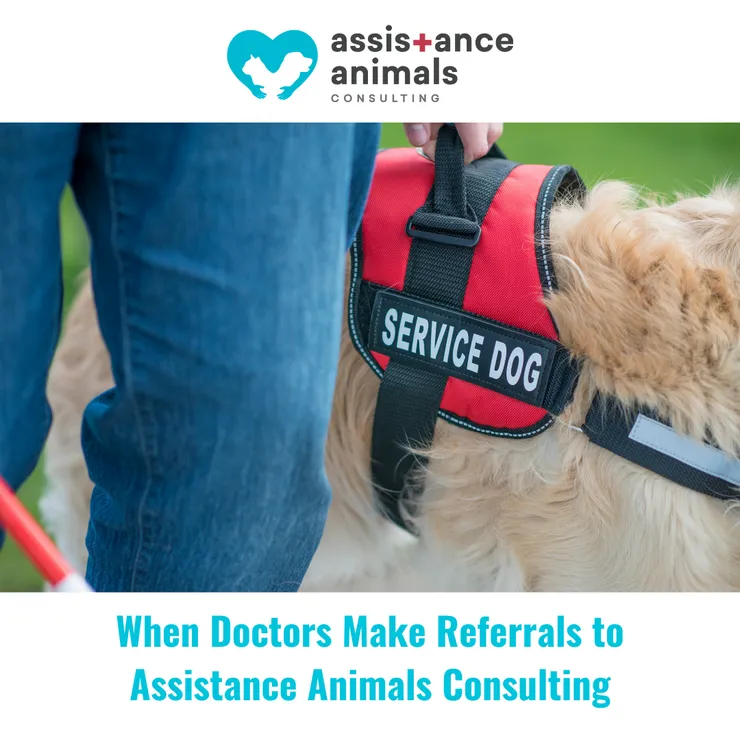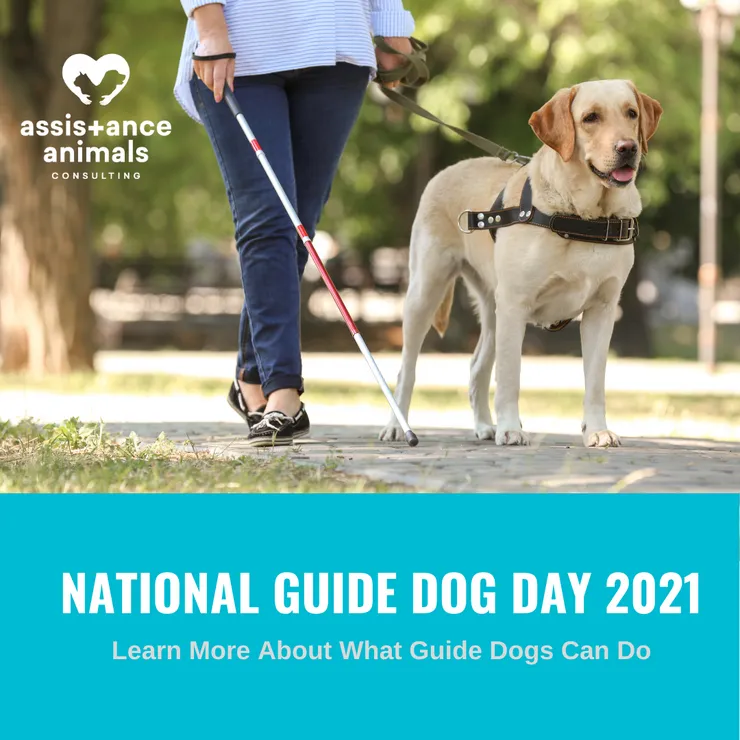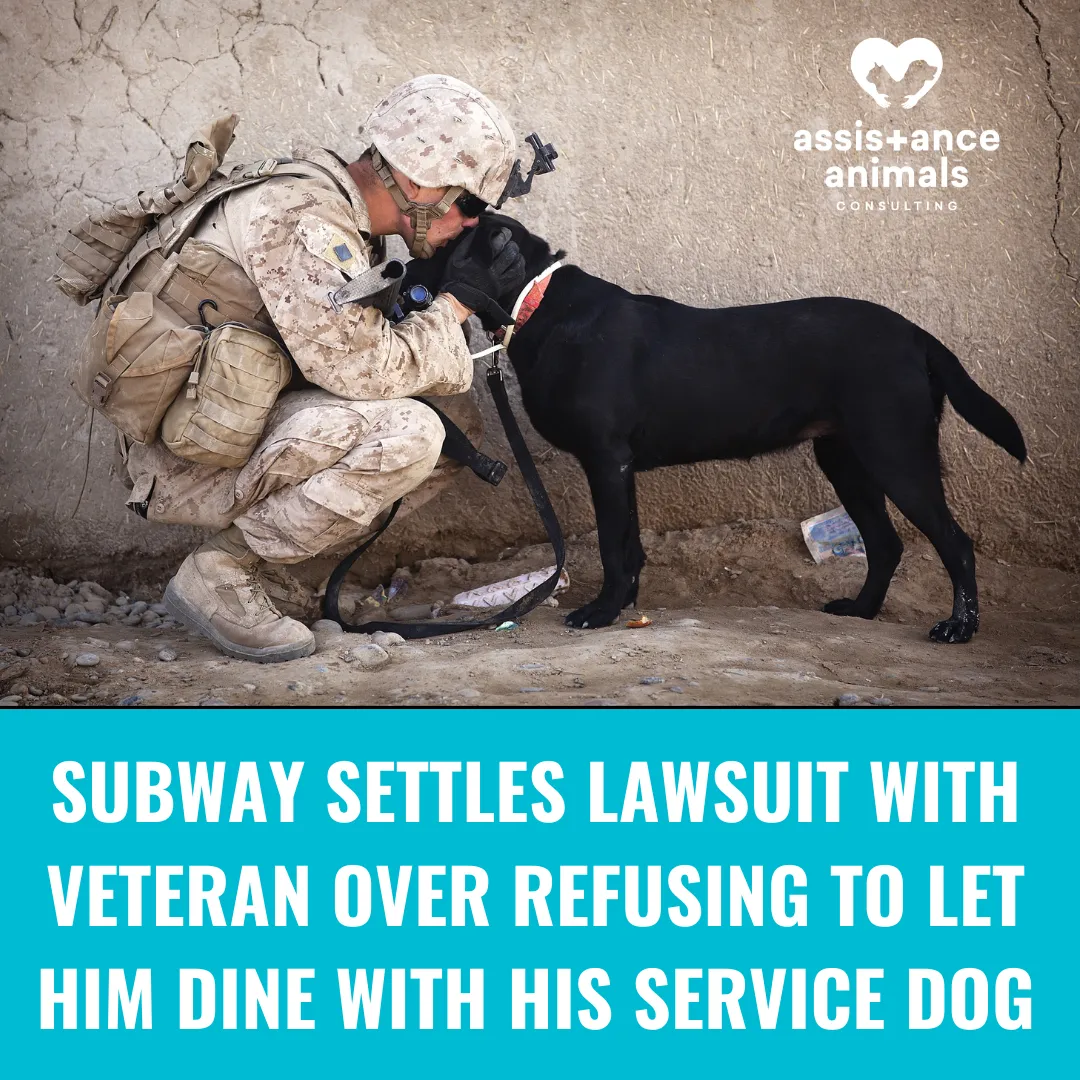How Service Dogs Can Help Cancer Patients
How Service Dogs Can Help Cancer Patients
Can service dogs and therapy animals support cancer patients? Since the 1980s, there have been significant advances in the field of animal-assisted therapy and the use of therapy dogs.
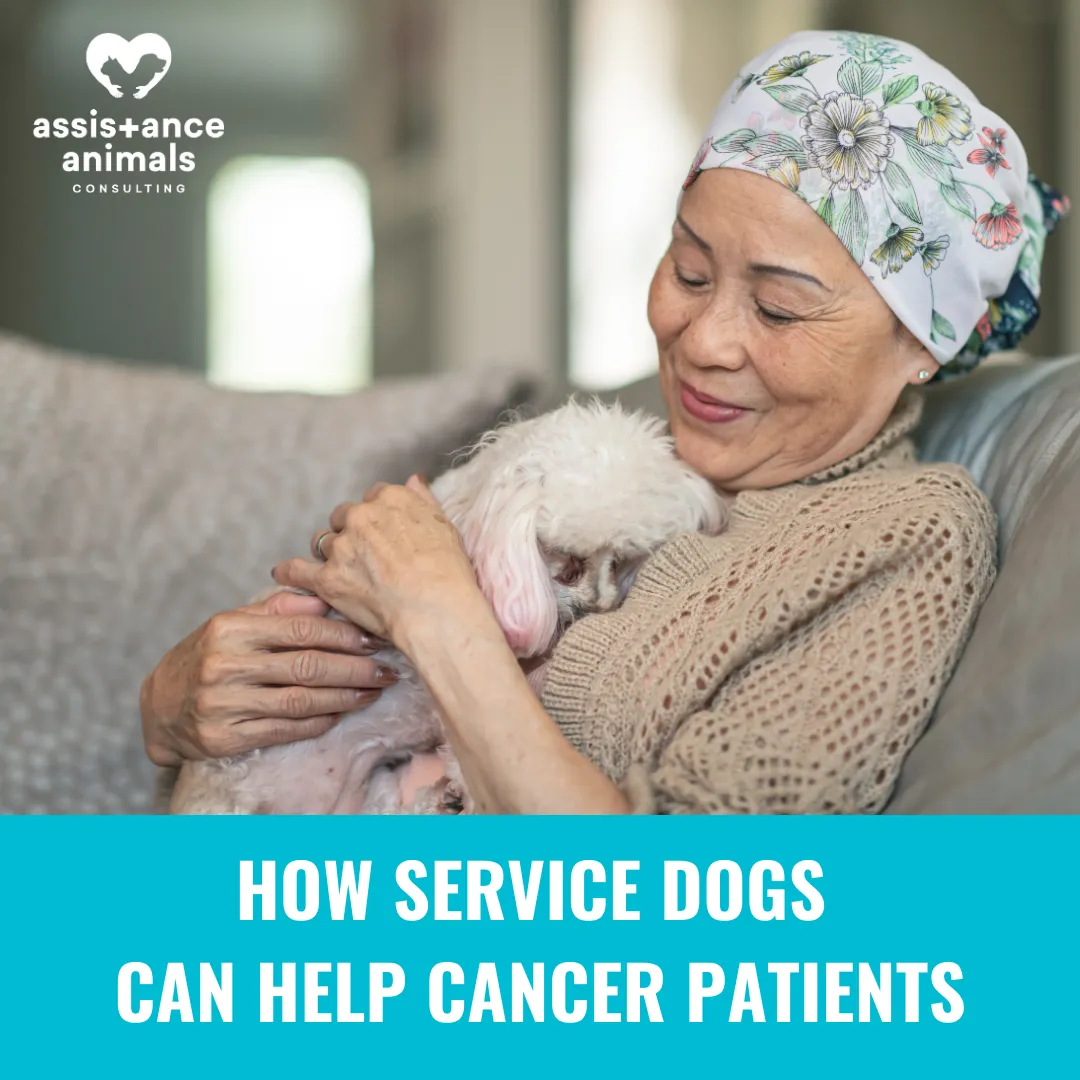
According to a study with cancer patients at Beth Israel Medical Center in New York City, they found that although their physical well-being declined during chemotherapy, patients who spent time with a therapy dog before each treatment reported an increase in their emotional and social well-being. Pet therapy has been growing in popularity, from visits to patients in hospitals to nursing homes, studies suggest there are some real benefits from spending time with these furry friends.
According to Cancer.gov in 2020. an estimated 1,806,590 new cases of cancer were diagnosed. The breadth of cancer's reach is wide and stretches across all ages of our population. Cancer has touched millions of lives for generations and while some treatments have advanced thanks to new technology, the toll on the lives of patients is still just as challenging as ever. Cancer has the second-highest mortality rate compared to other leading causes of death in the U.S.
When we consider the physically and emotionally draining experiences associated with cancer treatments it is easy to understand why exploring how service dogs and therapy animals could impact the treatment is interesting and worthwhile.
There is no doubt that pets and service animals are able to improve human health with a strong human-animal bond. There have been numerous studies at this point that have defined the health benefits of the human-animal bond. The potential benefits include decreasing anxiety, reducing loneliness, increasing feelings of self-worth, getting more physical activity, improving immunity support, increasing feelings of social connection, decreased psychological distress, and more.
Having a service dog or therapy animal to care for and love may help cancer patients cope better. These animals serve as a positive relationship and offer an emotional bond that doesn't involve some of the complexity associated with navigating human relationships during a cancer diagnosis.
According to the Mayo Clinic oncologist Dr. Edward Creagan, "A pet is a medication without side effects that has so many benefits. I can’t always explain it myself, but for years now I’ve seen how instances of having a pet are like an effective drug—it really does help people."
For cancer patients and others suffering from chronic illnesses, the healing qualities of dogs are evident. Here are just a few of the things service dogs can do to help people with cancer:
- Relaxation. Spending time with an animal is relaxing, and can be a source of joy on difficult days.
- Expression. Dogs are great companions, and cancer patients can talk to them about their fears and concerns openly without worrying about anyone else's feelings. Or enjoy their companionship without talking at all.
- Stress Relief. Based on research, petting animals releases endorphins and also reduces the stress hormone cortisol, which helps reduce stress and anxiety to improve mood.
- Pleasant Distraction. Focusing attention on a service dog or therapy animal can help patients stop thinking so much about their own pain and frustration for a time, which invites healing and improved health. While caring for their companion they are also caring for the own mental health.
- Socialization. Service animals can provide much-needed socialization. Many cancer patients find it difficult to resume normal activities and enjoyment outside of the home when undergoing difficult treatments. Loneliness can be a huge factor and can contribute negative effects on overall health and well-being. The time spent with a pet can help ease the feelings of isolation.
Beyond some of the positive emotional and psychological effects, trained service dogs may also be able to help with tasks including things like:
- Providing assistance with walking and other mobility issues
- Heping to prevent falls or pulling a wheelchair
- Turning lights and/or appliances on or off
- Reminders for taking medicine
- Carry bags, packages, and other items
- Picking up items that are dropped
- Barking for help and/or retrieving a phone if there is an emergency
- Helping with dressing or undressing
- Seizure alerts
Concerns
There are some concerns to consider before working with service dogs or therapy animals for hospitalized patients. First, it is necessary to ensure the animal has been properly trained to reduce issues related to behavior. it is also important to ensure it has been properly vaccinated and cleared with a health screening to make sure it poses no potential health risks for patients. Some patients may also be allergic to or scared of dogs - so it is important to screen patients and ask about these potential issues before considering a therapy dog as part of their treatment plan. Assistance Animal Consulting is a great resource for hospitals, organizations, and physicians who want to work with service dogs or therapy animals. They can provide guidance and education to help you plan your dog therapy program or treatment plans and help you navigate any concerns.
How to Find Treatment Centers that Use Service Dogs for Cancer Patients & Other Resources
The AKC keeps a complete list of therapy dog programs. You can also ask your physician about additional resources that are local.
If your cancer diagnosis has resulted in permanent disability, you may qualify for a long-term assistance dog. A trained service dog is different from a pet, it is a working dog specifically trained for assistance based on the needs of the patient and requires a prescription from your doctor. In the U.S. be sure to consult with a medical professional before pursuing this or any course of treatment.
If you are looking for a way to add pet therapy as a part of your cancer treatment plan, it is best to start with your cancer treatment center. Discuss it with your doctor and others on your medical team. They may have a formal program or they may be able to accommodate your wishes. Our team can also provide guidance and additional resources to help you and your service animal. We can also work with your doctor to bring the veterinary perspective into your treatment plan. We also provide strategic service animal evaluations to ensure your therapy animal is properly trained and meets health standards.
